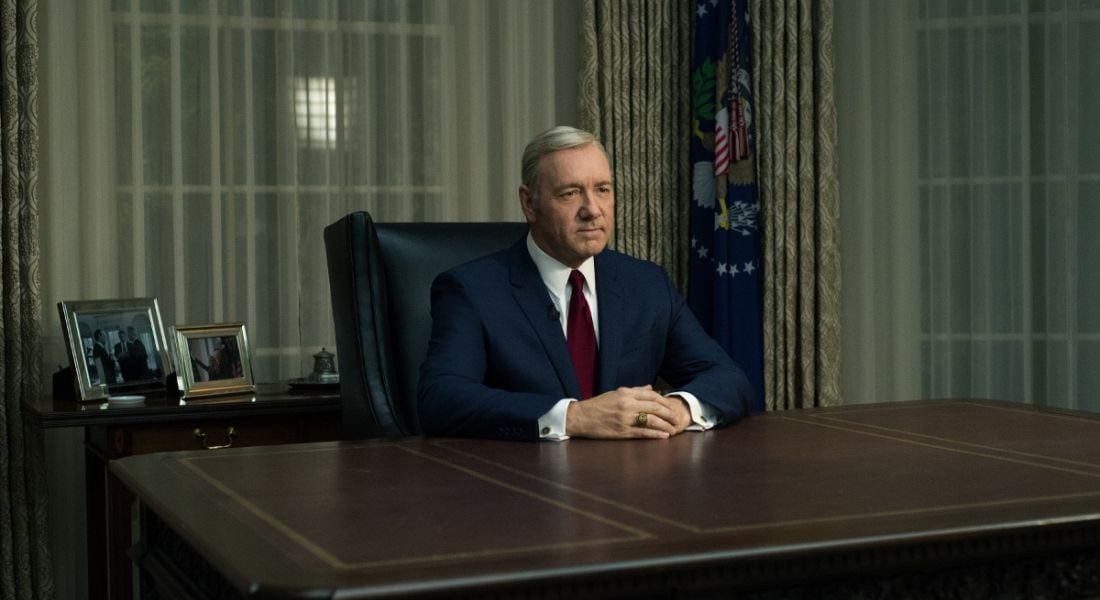Many beloved TV characters have to contend with terrible managers (or sometimes, are terrible managers themselves).
Did you know that today (16 October) is National Boss’s Day? The holiday, first submitted to the US Chamber of Commerce by Patricia Bays Haroski and then approved by the Illinois governor Otto Kerner in 1962, is a designated day to appreciate your boss and thank them for all their hard work during the year.
Some people are not blessed with praiseworthy bosses, however, such as our favourite characters in TV land. If anything, some of the workplaces portrayed on the small screen are headed up by the worst managers, supervisors and executives imaginable.
In some cases, our favourite characters are even the ones guilty of committing managerial faux pas. Here are the top 10 worst bosses on television that are guaranteed to make you feel better about your own boss. Be warned, though: there are some mild spoilers ahead.
Natalie ‘Fig’ Figueroa, Orange is the New Black
Though she was later vindicated when a private corporation took over Litchfield prison and did a horrendous job of running the place all together, Natalie Figueroa wasn’t exactly the ideal candidate for executive assistant to the warden.
Any of the capability she displays is negated by the fact that she embezzles tens of thousands of dollars from the prison to fund her husband’s political campaign, at the expense of its inmates and already dilapidated facilities.
She is more concerned about the public image of the prison, and how that reflects on her, than on the welfare of the prisoners under her charge.
Don Draper, Mad Men
Don Draper is most often remembered as the sparkling advertising director who knows how to perfectly craft ads to tap into the psychology of a buyer (“It’s toasted”).
It’s easy to forget that he has a team of employees to oversee because he’s too narcissistic and self-absorbed to ever fulfil his role as a leader. When he hasn’t got a vice grip on a glass of whiskey, Draper is either deriding his copywriters or vacillating between being excessively rude and sexually harassing his assistant.
His employees get some respite when he leaves the office to: a) cheat on his wife, b) moodily reflect on his past, or c) both. Don’t let Draper’s perfect hair blind you to his ineptitude.
Michael Scott, The Office (US)
Michael Scott is the perfect example of a great employee erroneously being assumed to be fit to manage others, neglecting the fact that being a manager involves a level of skill beyond what is demanded of an employee.
Scott was one of the best paper salesmen Dunder Mifflin ever had but, as a manager, he was quickly revealed to be petty, a terrible judge of character, too concerned with being his employees’ best friend, wildly inappropriate and ignorant. To make matters worse, he starts an on-again, off-again affair with his supervisor Jan, negative developments of which spill into his work and distract him.
Though entertaining, no one should ever attempt to emulate Scott’s behaviour in the workplace, or anywhere for that matter.
Wilhelmina Slater, Ugly Betty
In many ways, Wilhelmina Slater undeservedly gets a hard time. Ultimately, she was just angry that she was passed over as editor of Mode in favour of Bradford Meade’s son, who had no relevant experience. However, she did some unforgivable things as creative director of the magazine.
So determined was she to gain control of Mode, Slater attempted to sabotage her peers and even the magazine itself on many occasions. She roped her assistant Marc into these schemes, leaving one to wonder when exactly she had the time to creatively direct.
Mr Burns, The Simpsons
As well as embodying almost every archetype of evil, Mr Burns is greedy, corrupt and generally odious. Though he has done well for himself, as evinced by his opulence, the owner of Springfield’s nuclear power plant is a terrible leader.
He knows very little about his employees, demands a disturbing amount from his assistant Smithers, and somehow possesses such terrible judgement that he thought Homer Simpson would be a suitable candidate to inspect and oversee the safety of the plant.
Did we mention he sends his frothing, teeth-bearing guard dogs after people? That too.
Frank Underwood, House of Cards
The president of the United States counts as a boss, right? As far as bosses go, Frank Underwood is pretty awful.
Similar to many listed here, Underwood’s cutthroat ambition and selfishness leads him to sabotage his own country in a way that could be described as treasonous for the sake of his own agenda.
Worse yet, his recent bid to strike fear into the hearts of American people so they submit more to his will, and attempts to manipulate the news cycle with ‘fake news’, makes it clear that Underwood will transform into an outright autocrat if allowed.
Jack Donaghy, 30 Rock
Though Donaghy, a self-made man who worked his way up the corporate ladder despite humble beginnings, is undoubtedly impressive (received a scholarship to Princeton, served as intern to senator Ted Kennedy, overall proven to be a great product developer), the NBC head is definitely not the ideal boss.
Somewhere along the way, Donaghy became enamoured with corporate greed and began to personify most of the worst traits of so-called ‘elites’. He’s often guilty of deflecting blame, taking credit for the work of others, treating his assistant terribly and acting obsequious around the CEO.
Like many terrible TV bosses, Donaghy places his own success ahead of the wellbeing of the company and its employees. He also once said: “Sometimes, you have to change things that are perfectly good just to make them your own.”
Bob Kelso, Scrubs
While it is important to consider the ‘bottom line’, Dr Kelso is so fixated on running his hospital as a business, that he’s totally unconcerned about his employees as well as his patients.
Kelso often coldly ejects patients without insurance plans, seemingly unbothered by the fact that they are in desperate need of medical help, which calls into question how good of a medical practitioner he could have possibly been when he seems to totally lack empathy.
He’s also incredibly lazy, constantly finding ways to fall asleep at work and coming up with workarounds so he doesn’t have to do his job. You’d think he’d channel the energy required for planning naps into his work, but no.
Tony Soprano, The Sopranos
Continuing the trend of using the term ‘boss’ loosely, Tony Soprano is arguably a boss, as he leads a crime family.
Soprano is pretty much the antithesis of the level-headed individual you would want at the head of your organisation. He’s impulsive, hypocritical, arrogant and does little to foster relationships within the family and his crew. He struggles to make any decision that would come at his own expense, even if it would be in the best interests of the family.
Though there weren’t people lining up to fill his position – and, in a way, Soprano was the only person truly suited to the role – he doesn’t execute it very well.
Mr Krabs, SpongeBob SquarePants
One of the original terrible TV bosses who moulded our minds in childhood and taught us the classic managerial red flags, Krabs was too driven by greed to be an effective organiser.
He often neglects and abuses his devoted employee SpongeBob, despite the fact that the latter is not only the ideal worker but frequently espouses the ‘brand speak’ of the company.
Not to mention, as the only cook in Krabs’ employ, SpongeBob is pretty essential to the running of the operation and yet is constantly undervalued.
It is Krabs’ obsession with money that often blinds him to various attempts by his competitor, Plankton, at using corporate espionage to obtain the secret Krabby Patty recipe. Pretty remiss of him as a small business owner, to be honest.




